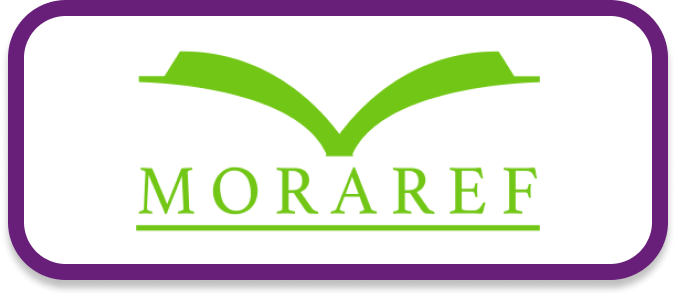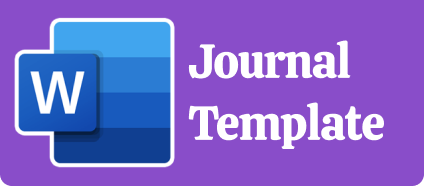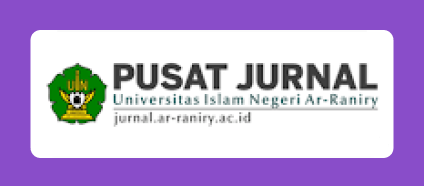PERAN UNIT PENGELOLA PPL DALAM MENINGKATKAN KOMPETENSI MAHASISWA PPL DI PROVINSI ACEH
Abstract
The PPL management unit at the LPTK is very important to make student teacher candidates competent. Students as prospective educators must have teacher competence, in the form of abilities and skills in managing learning properly. These abilities and skills are shown by the ability to plan lessons, carry out learning and evaluate learning. The reality is that the teacher competence of PPL students is still not optimal, such as PPL students who have not used various methods, have not implemented the learning process using a scientific approach, in addition, there are still students who are not disciplined. This study uses a qualitative approach that seeks to interpret the phenomena experienced by research subjects. The research method used is descriptive analysis method. The results showed that the teaching competence of PPL students (academic and non-academic) was generally good. It only needs strengthening in the field of developing varied learning models, strengthening social competence and self-confidence. Furthermore, there are two factors that affect student competence in school, namely internal and external factors. Then the role of the PPL unit has also been good, the process has been carried out since the preparation then continued with implementation, evaluation and follow-up. However, it is necessary to increase coordination between the PPL unit and schools, especially regarding the initial PPL preparation.
Keywords
Full Text:
PDFReferences
Azhar, Kondisi LPTK Sebagai Pencetak Guru Yang Profesional. Tabularasa-Jurnal Pendidikan PPs Unimed, Vol.6 No.1 Juni 2009. pp (1-13).
Cendekia Vol. 12 No. 2, Juli - Desember 2014, h. 339-340)
E Mulyasa, Kurikulum Berbasis Kompetensi, cet.ke 12, Bandung: Remaja Rosdakarya, 2010.
E. Mulyasa, Implimentasi Kurikulum 2004, Panduan Pembelajaran KBK, Cet. Ke. 5, Bandung: Remaja Rosdakarya, 2009.
Hasibuan, J.J., dan Moedjiono, Proses Belajar Mengajar, Bandung: Remaja Rosdakarya, 2006.
John M. Echols dan Hassan Shadily, Kamus Inggris Indonesia, (Jakarta: PT. Gramedia, 2003.
Jurnal Formatif 4 (1): 56-64, 2014, ISSN: 2088-35IX) oleh: Dasmo, “Peran Guru Pamong dan Dosen Pembimbing Terhadap Keberhasilan Program Pengalaman Lapangan (Ppl) Mahasiswa”. Diunduh tanggal 2 Oktober 2018
Kunandar, Guru Profesional, Implimentasi Kurikulum Tingkat Satuan Pendidikan dan Sukses dalam Sertifikasi Guru, Jakarta: Raja Grafindo Persada, 2007
Lexy J. Moeleong, Metodologi Penelitian Kualitatif, Ce.t ke 36, Jakarta: Erlangga, 2017.
Mardianto, dkk., (Ed), Materi Profesi KeguruanMadrasah, Medan: FITK, 2013
Muhammad Ali, Guru dalam Proses Belajar Mengajar, Cet. Ke 14. Bandung: Sinar Baru, 2010
Muhibin Syah, Faktor-faktor yang Mempengaruhi Belajar, Bandung: Grafindo Persada, 2009.
Panduan Program S1 dan D3 IAIN Ar-Raniry Tahun Akademik 2018/2019, Banda Aceh: IAIN Ar-Raniry.
Peraturan Pemerintah Republik Indonesia Nomor 19 Tahun 2005 tentang Standar Nasional Pendidikan
Peter Salim dan Yenny Salim, Edisi ke 3, Kamus Bahasa Indonesia Kontemporer, Jakarta: Modern English, 2002.
Tim IDC, Buku Panduan Penilaian PPL, (IDC FTK UIN Ar-Raniry), 2016.
Trianto, Mendesain Model Pembelajaran Inovatif Progresif dan Kontekstual, Jakarta: Prenada Media, 2006
Tim Pustaka Phoenix, 2007, Kamus Besar Bahasa Indonesia, Jakarta: Phoenix.
Tim Penyusun, UURI No.14 Tahun 200 5tentang Guru dan Dosen dan UU No.20 Tahun 2003 tentang Sisdiknas, Surabaya: Wipress, 2006.
Umi Chotimah, “Peranan LPTK dalam Mewujudkan Guru yang Profesional: Suatu Tantangan dan Harapan, Makalah disampaikan dalam Seminar Nasional Pendidikan, di Palembang, tanggal 14 Mei 2009.
UU RI No. 14 Th. 2005, Guru dan Dosen, Jakarta: Sinar Grafika, 2006. Wardani, I.G.K & Anah Suhaenah, Program Pengalaman Lapangan. Jakarta: Depdikbud, 1994.
DOI: http://dx.doi.org/10.22373/pjp.v9i2.9001
Refbacks
- There are currently no refbacks.
Copyright (c) 2021 Mashuri Mashuri

This work is licensed under a Creative Commons Attribution-ShareAlike 4.0 International License.

























